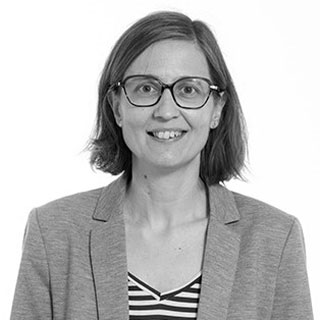Clara Cortina
5. Kaleidoscope
It is necessary to adapt to a professional world that will undergo a profound transformation.

Clara Cortina,
vice dean and head of teaching innovation in the Department of Political and Social Sciences
The latest artificial intelligence (AI) tools have burst on scene to great fanfare, upending many of the ideas we had until now about the relationship between technology and society. The assessments offered by different authorities in recent months are varied, running the gamut from breathless enthusiasm to prophecies of doom. They are assessments that consider the potential impact of AI and its ‘democratization’ on multiple areas of our life in society, as well as on the environment. In this article, I will focus exclusively on the field of university education from a perspective that considers both the short- and long-term potential impacts.
In the short term, there is a broad consensus on the need to adapt our assessment systems and learning methodologies to the opportunities that AI offers students and teachers. In my view, this is a significant challenge, but one that is still feasible and not radically new, as we are constantly innovating in teaching. In fact, we have already come a long way towards more autonomous learning by students and towards teaching the necessary criteria to make good use of the new technologies for accessing information that have emerged. Of course, the new AI framework means we will have to be even more creative if we are to meet two elementary but essential objectives: for students to learn to write in a world with readily available text generators, and for students and teachers to learn to critically evaluate both human and artificial information sources.
The new AI framework means we will have to be even more creative if we are to meet two elementary but essential objectives: for students to learn to write in a world with readily available text generators, and for students and teachers to learn to critically evaluate both human and artificial information sources.
Gauging the medium- and long-term impacts is harder, but it seems reasonable to assume that here the challenges will be greater and that they will lead us to rethink our teaching offer. Rethink it in terms of the content and curricula of each degree programme to prevent them from becoming obsolete and to ensure they meet the new needs of those who will go on to practice the professions with other parameters and tools. But also in terms of the range of degree programs, both undergraduate and postgraduate, offered at our university. One way or another, we will need to adjust to a professional and working world that is poised to undergo a profound transformation, which, according to some recent studies, will affect many professions. In this new context, which programmes will remain attractive or even gain new momentum? Which ones will cease to be of interest? And, even more importantly, which new ones will emerge? It is difficult to say for sure, but it will clearly require a lot of flexibility to adapt.
